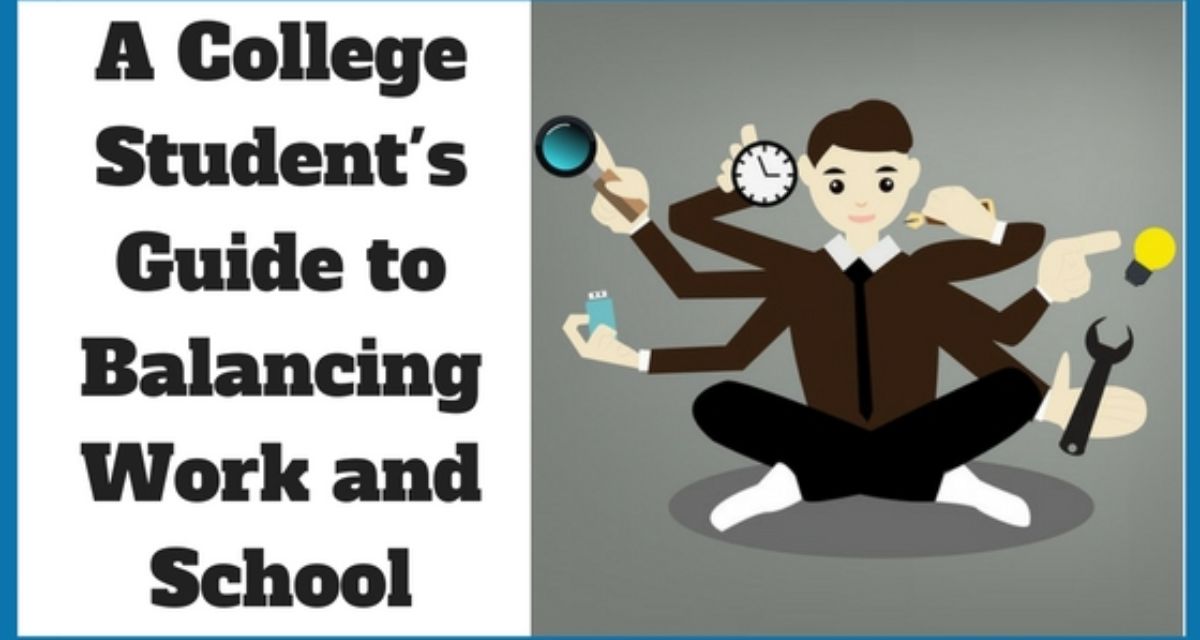Balancing work and college can be a challenging yet rewarding endeavor for working professionals pursuing further education. Successfully managing both responsibilities requires careful planning, effective time management, and a commitment to self-care. Here are strategies to help working professionals balance work and college:
1. Create a Realistic Schedule:
- Plan: Develop a realistic and detailed schedule that includes dedicated time for work, classes, study sessions, and personal commitments. Consider using digital calendars or planners to stay organized.
2. Prioritize and Set Goals:
- Prioritize: Clearly define your priorities and set achievable short-term and long-term goals. Identify tasks that require immediate attention and those that can be addressed later.
3. Communicate with Employers and Professors:
- Communicate: Maintain open communication with your employer and professors. Inform them about your work and study commitments, and discuss any potential conflicts in advance. Many employers and educators are supportive of individuals pursuing higher education.
4. Optimize Work-Study Balance:
- Optimize: If possible, explore opportunities for work-study programs that align with your academic goals. Some employers may offer flexible schedules or support educational pursuits through tuition reimbursement programs.
5. Efficient Time Management:
- Manage Time: Practice efficient time management by breaking down tasks into manageable segments. Use techniques such as the Pomodoro Technique (work in focused intervals followed by short breaks) to maintain productivity.
6. Utilize Online and Hybrid Classes:
- Explore: Consider taking online or hybrid classes that offer flexibility in terms of when and where you study. Online courses can be particularly beneficial for working professionals with busy schedules.
7. Build a Support System:
- Connect: Build a strong support system that includes colleagues, classmates, friends, and family. Discuss your challenges and seek advice from those who have successfully navigated the work and college balance.
8. Set Boundaries and Learn to Say No:
- Establish: Set clear boundaries to protect your study time and personal time. Learn to say no to additional work commitments or social activities when necessary to prioritize your academic and professional responsibilities.
9. Efficient Study Techniques:
- Adopt: Adopt effective study techniques that maximize your learning in a shorter amount of time. Focus on active learning methods, such as summarizing key points, creating flashcards, or teaching concepts to someone else.
10. Take Advantage of Resources: – Utilize: Take advantage of available resources, such as on-campus support services, online forums, and study groups. These resources can provide valuable assistance and a sense of community.
11. Be Mindful of Health and Well-being: – Prioritize: Prioritize your physical and mental well-being. Get enough sleep, maintain a healthy diet, and engage in regular exercise. Taking care of your health is crucial for sustaining energy and focus.
12. Set Realistic Expectations: – Be Realistic: Set realistic expectations for yourself. Understand that there will be challenges, and it’s okay to ask for help or make adjustments to your plan when needed.
13. Plan Breaks and Leisure Time: – Schedule: Schedule breaks and leisure time to avoid burnout. Taking short breaks during study sessions can improve focus and overall productivity.
14. Develop Effective Communication Skills: – Hone: Hone effective communication skills, both written and verbal. Clear communication with colleagues, professors, and supervisors is essential for managing expectations and potential conflicts.
15. Stay Motivated and Positive: – Cultivate: Cultivate a positive mindset and stay motivated by regularly reminding yourself of the benefits of balancing work and college. Celebrate small achievements along the way to maintain enthusiasm.
Balancing work and college requires careful planning, adaptability, and a proactive approach to managing time and priorities. By implementing these strategies, working professionals can successfully navigate the dual responsibilities of work and academic pursuits.
